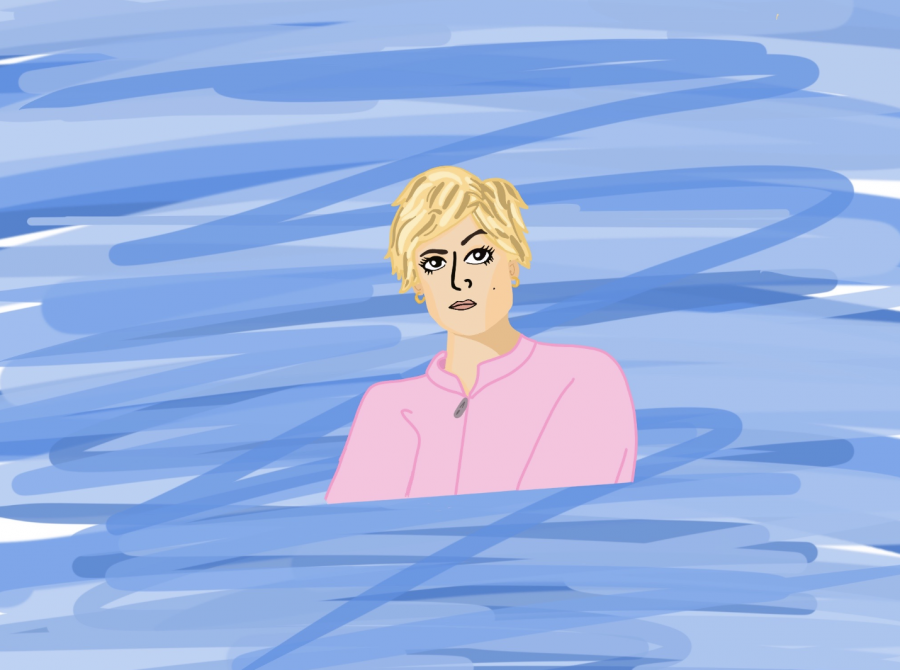Unpacking the Karen Stereotype
In 1965, Karen was the third most popular baby name in the United States, according to The New York Times. In 2018, the last year for data available, it was ranked in 635th place for baby names. Staff illustration: Sophie Fang.
March 9, 2021
Karen. She’s likely a middle-aged white woman with a pixie cut and blonde streaks. She’s likely wearing some sort of tracksuit and has sunglasses perched on top of her head. In between her kids’ soccer games, she yells at the manager or harasses police officers.
You’ve probably seen this stereotype plastered all over social media. You might have even labeled an overzealous woman you passed on the street a Karen. The exact origin of the Karen nickname is unclear, according to The Los Angeles Times. But the nickname does clearly represent a sexist stereotype, one that excuses what Karen behavior really is: white entitlement.
Karens are famously associated with white women who call the police on apparently innocent people of color, according to Forbes. One memorable example is Amy Cooper, a white woman who called the police on a Black man in Central Park when he requested that she curb her dog. Or when a white woman called the police on a Black child selling water on the sidewalk. Or when San Francisco-based skincare CEO Lisa Alexander, another white woman, confronted a man writing Black Lives Matter in chalk outside of his apartment and threatened to call the police.
With the COVID-19 pandemic and the Black Lives Matter movement, “Karen sightings” have only increased, according to Forbes. Many of these sightings involve women who refuse to follow COVID-19 safety restrictions, according to The Los Angeles Times.
With most Karen situations, the Karen is clearly in the wrong. There is no need to call the police on innocent Black children or to not wear a mask when the store clearly requires one. The behavior maintained by Karens perpetuates harmful stereotypes surrounding people of color and distracts from the greater fight for racial equality. However, the issue with the Karen stereotype lies directly in the name itself. The Karen nickname forces us to focus on a very specific category of American racial prejudice incidents: the ones that involve middle-aged white women. And while we cannot excuse these incidents, society often overlooks racial and pandemic incidents incited by white men of the same variety, according to Forbes. In fact, according to BBC, men are actually more likely to not wear masks in public settings. It’s a term that has expanded to further characterize all women, not just white women, as crazy and hysterical. Robin Abcarian of The Los Angeles Times describes the Karen nickname as “inescapably tinged with sexism” in an opinion piece published in May 2020.
The original meaning of the epithet has been lost in the Karen craze. No longer is the nickname a condemning representation of white privilege, but rather a casual insult thrown between friends. Particularly on many Reddit posts, where misogyny regularly runs wild, users describe any woman who simply annoys someone as a Karen, according to The Atlantic.
We can’t continue to use the label Karen for women who provoke racist incidents that occur at grocery stores or parks or restaurants. We need to label the women — and the men — behind racist outbursts for who and what they really are: deeply prejudiced people who believe they are entitled to preferential treatment because of their skin color.



